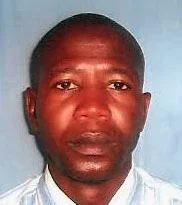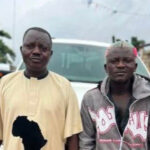Afolabi Gambari
The founder of the Citadel Global Community Church, Pastor Tunde Bakare, is an orator par excellence. His fiery style attracts attention to his oratorical prowess. It does not matter if he is loved or hated; his ability to captivate his audience is as uncanny as it is awesome. Indeed, it is enviable.
Perhaps, simulating the American political leaders who periodical weigh into matters of national interest, the clergyman, a former vice presidential aspirant, convener of “Occupy Nigeria”, philanthropist, social critic and until 2022 a presidential aspirant, made a ‘State of the Nation’ broadcast on April 20 this year, wherein he said: “Fellow citizens.”
He continued: “It is fitting that today’s state of the nation broadcast is being delivered to a nation in need of resurrection this Easter Sunday. In the Book of Ezekiel, the prophet was transported to a valley full of dry bones where God asked him, “Can these bones live?” I imagine He is also asking us today: “Can Nigeria live?” If we think of the mass grave in Bassa, Jos into which over fifty of our citizens were lowered a few days ago; if we think of the sense of foreboding, hunger, sorrow, shame, and of utter hopelessness, we may be moved in our broken humanity to answer, “No.””
Bakare weighed in on the Tinubu administration’s “Renewed Hope Agenda” that has since turned out as what it is: mere slogan: “Yet, it is precisely in moments such as this, when hope, far from being renewed, is depleted; it is in moments like this that truth becomes as precious as oxygen to our body politic. For today’s State of the Nation Broadcast, I am borrowing words attributed to Abraham Lincoln, the 16th president of the United States of America, as my title. He said, “Let the people know the truth, and the country is safe.” Only by confronting our reality with honesty and courage can we begin the work of resurrection – not just of our nation, but of our collective broken spirits.”
He continued: “People of faith have prayed to the point of weariness, and any call for prayer now appears to be a mere religious ritual. Some have concluded that we have prayed long enough, and that unless certain pragmatic steps are taken with immediate effect, the rage of the poor may engineer social, economic, and political worst-case scenarios.”
It may appear that the Tinubu administration had thought of the “worst-case scenarios” too. But it also appeared the administration had sorted that nicely by becoming a government by palliatives, having weaponised deprivation among the majority of the Nigerian people. But Bakare suggested that applying palliatives merely postponed the evil day: “To avert the full-blown breakdown of law and order in our fragile democracy, and the intervention of our already battle-weary armed forces, I offered timely counsel to the Nigerian government and led prayers for the administration of President Bola Ahmed Tinubu on Sunday, January 12, 2025. My admonition, titled “A Word in Season for the Nigerian Government: A Timely Counsel in Our Season of Great Challenge and Great Need”, was based on the encounter between Joseph and Pharaoh, king of Egypt, as recorded in Genesis 41. I said to Mr. President: Dear President Tinubu, please borrow a leaf from the pharaoh who ruled Egypt at the time of Joseph. This particular pharaoh showed remarkable wisdom and insight, as well as a heart receptive to truth. God strategically positioned this humble man as king over Egypt at a crucial time in world history. When he awoke from his dream, he recognised something odd was happening. As a strong leader, he acknowledged his sense of unease. But as a humble leader, he enlisted the advice of others. He summoned Joseph, who successfully interpreted his dreams. Pharaoh knew his kingdom hung in the balance, as he carefully processed the message God had given him through Joseph. I then went ahead to declare and pray: God is about to do something with Nigeria that will cause nations of the earth to come here and learn. May the good Lord grant President Tinubu hearing ears and an understanding heart to do the needful for Nigeria’s turnaround, for the betterment of our citizens.”
It was not impossible that Bakare’s sermon did not impress those for whom it was meant, as he explained in the broadcast: “Dear Nigerians, the past few months since that admonition have shown that those responsible for steering the course of our nation lack the humility and character this moment demands of leaders. Instead, what we have seen since the beginning of the year is a descent into tyranny and the brazen abuse of power. Those entrusted with power appear determined to destabilise what is left of our political institutions and have committed themselves to obliterating the guardrails of constitutional governance.”
In case he was not understood, he expatiated on the foregoing: “From the theatre of the absurd staged in Rivers State, with puppets on strings controlled by directors in Abuja, to the dance of shame performed by the National Assembly in their rush to suspend the constitution and endorse, through the backdoor, the usurpation of powers by President Bola Ahmed Tinubu; from the Senate’s shameless bid to silence Senator Natasha Akpoti-Uduaghan for demanding that the President of the Nigerian Senate uphold the moral standards required of that office, to the uncouth outbursts of an undistinguished senatorial misfit who tried in vain to silence the distinguished citizens attempting to testify on behalf of Senator Akpoti-Uduaghan, it is clear that our so-called leaders are determined to turn Nigeria into a mafia state.”
A “mafia state” looks like a fitting description for the incumbent administration, especially considering how opposition parties have been falling over themselves to switch to the ruling party with justifications flying all over the place and officials of the ruling party revelling in the phrase “we didn’t force anyone to join us”. It was not that Bakare demonstrated in the broadcast knowledge that many discerning Nigerians did not have. He also did not say what many had not said, and continued to say, safe for the undeniable fact that his voice carried weight and could escalate beyond the Nigerian borders.
It was thought in many quarters, however, that Bakare had merely broadcast to the deaf. But it turned out that his sermon hit the right target when news surfaced that he would have a private meeting with Mr. President in Lagos on June 4.
After the meeting, which lasted for an hour, a horde of reporters had practically ambushed Bakare as he walked off the premises.
“My conversation with the president focused on national development and the future of Nigeria,” he said. The reporters, less than impressed with the perfunctory response, pressed the cleric further. But he only said: “I look forward to a peaceful and united Nigeria.” There was yet a hint that the meeting may not have gone smoothly, as Bakare said, soberly: “The things I have told Mr. President are not hidden things, but I have learnt that when you discuss with the person in charge, you leave it with him to do whatsoever he wills with whatever you have suggested.”
A firebrand Bakare was the one seen on television broadcasting on April 20. But a subdued man was the one seen talking to reporters on June 4. What changed? Thankfully, he had told the reporters that “I did not visit Tinubu for personal gains”.








